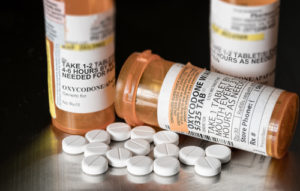Naltrexone, goes by the trade names ReVia and Vivitrol, is a medication that was initially designed to address opioid abuse. It may also be useful in reducing cravings for alcohol.
Naltrexone is one of three medications the U.S. Food and Drug Administration (FDA) has approved to treat alcohol use disorders.
There are minor differences between ReVia and Vivitrol.
- ReVia is naltrexone in pill form.
- Vivitrol is an injectable and extended-release form of naltrexone.
ReVia must be taken daily, whereas Vivitrol injections may last for a week.
How Does ReVia Work?
ReVia is an opioid antagonist medication that binds to opioid receptors in the brain and reduces the effects associated with opioid drugs and alcohol. By binding to these receptors, it also reduces any cravings or urges a person will have to use opioids or alcohol.
Can ReVia Be Abused?
An opioid antagonist medication like ReVia does not produce any type of the psychoactive effects that drug abusers typically seek.
Essentially, this medication has no real potential for abuse, but you will need to get a prescription for it. It is not listed as a controlled substance.
The Original Use for Naltrexone (ReVia)

Naltrexone was approved for treatment for opioid use disorders in 1984, and research studies have suggested that it may reduce cravings for opioids. The research also suggests that the injectable form of naltrexone, Vivitrol, may work better at reducing cravings for opioids than the pill form, ReVia.
Due to its success in some research studies in reducing cravings for opioids, researchers wanted to find out if naltrexone could also reduce cravings for other drugs. This led to using naltrexone to treat alcohol use disorders.
Treatment for Alcohol Use Disorders
Research studies have suggested that naltrexone is moderately effective in reducing cravings for alcohol. The overall body of research indicates that using naltrexone in the treatment of alcohol use disorders may:
- Decrease overall alcohol use if you are a heavy drinker
- Decrease the number of times you drink
- Decrease in the overall amount of alcohol you drink if you choose not to remain abstinent
Research findings indicate that naltrexone should be used for at least three months. It is more effective in reducing alcohol use if it is used while you are in a treatment program.
The Major Drawback
Like many medications that are designed to control cravings for alcohol or to reduce overall use, research studies have suggested that compliance with taking the drug is one of the biggest obstacles to its success. If you do not use the drug, it cannot work for you.
Some people may forget to take ReVia, or they may intentionally skip taking it. This is why many clinicians suggest using the long-acting injectable form of naltrexone, Vivitrol, instead of ReVia.
Side Effects
The Substance Abuse and Mental Health Services Administration (SAMHSA) reports that the following are the most common side effects associated with using naltrexone products like ReVia:
- Problems with the gastrointestinal system, such as stomach cramps, nausea, or diarrhea
- Muscle cramps
- Headaches
- Problems with sleeping (insomnia or sleeping too much)
It is not recommended that pregnant women use naltrexone products.
The Ability to Reduce Cravings
Some studies find that ReVia may reduce urges to drink alcohol, whereas others find no significant effect.
Regardless, ReVia will work best for you if you are already abstinent from alcohol and opioids for at least five to 10 days before starting the medication.
Do Not Take Opioids While on Naltrexone
Research studies and SAMHSA also advise that anyone using a naltrexone product should not take opioid drugs.
You should not use opioid medications if you are taking ReVia, even if you have a prescription for them, because naltrexone diminishes the effects of opiates. You may attempt to take more of the opioid than you should, leading to an overdose. If you are prescribed opioids for pain and are taking ReVia to treat alcohol abuse, discuss the situation with your physician.
What Happens if You Drink While Taking ReVia?
You can drink alcohol while taking ReVia, but ReVia will limit the amount of alcohol you will want to drink.
The National Institute on Alcohol Abuse and Alcoholism (NIAAA) reports that the following will happen:
- You will still experience impairments you would normally experience from alcohol use, such as a decrease in reaction time, a slow rate of thinking, slurred speech, and problems with walking or coordination.
- ReVia will not affect withdrawal symptoms when you stop drinking alcohol. If you experience withdrawal symptoms when you stop drinking, immediately contact a physician.
- ReVia will not protect you from many of the short-term and long-term ramifications of alcohol abuse, such as the development of cirrhosis of the liver, cardiovascular problems, and ulcers.
- You may feel less of an urge to keep drinking alcohol.
- You may reduce your alcohol intake.
The Sinclair Method

Because some research studies do not find that ReVia significantly reduces the urge to drink alcohol and does not promote abstinence from alcohol, some clinicians have suggested that ReVia may be best used by individuals who are still drinking to reduce their alcohol intake. One of these approaches is the Sinclair Method.
In this approach, it is suggested that you take naltrexone about an hour before you plan to drink alcohol. The approach claims to be able to significantly reduce your alcohol intake and cravings to drink more alcohol once you start drinking.
The research on the effectiveness of this method is limited and consists of one older study published in 2001. More research is needed to ascertain if using ReVia in this manner can help individuals with alcohol use disorders reduce their overall intake of alcohol and get them started in a recovery program.
There appear to be no recorded significant dangers of drinking alcohol while taking naltrexone. There is research that suggests that the drug may be more effective in reducing alcohol intake if it is taken before drinking as opposed to using it and attempting to remain abstinent from alcohol. This research also needs to be replicated.
Get Help at Serenity at Summit Today
ReVia is an opioid antagonist medication that may reduce your cravings to drink alcohol and/or may reduce the amount of alcohol you drink. It is not designed to be a first-line or stand-alone treatment for alcohol use disorders. It should be used in conjunction with a professional treatment program that includes the use of medications, therapy, and participation in support groups.
ReVia can help you get on the road to recovery, but it will not make you stop drinking.
You should not use opioid medications while you are taking ReVia. If you drink alcohol while you are taking ReVia, you may find you do not want to drink as much alcohol as you normally would.
Naltrexone. RxList. Retrieved from: https://www.rxlist.com/naltrexone-hydrochloride-drug.htm
ReVia. Duramed Pharmaceuticals. Retrieved from: https://www.accessdata.fda.gov/drugsatfda_docs/label/2013/018932s017lbl.pdf
Vivitrol. Alkermes, Inc. Retrieved from: https://www.vivitrol.com/
Oral naltrexone maintenance treatment for opioid dependence. Cochrane Review. Retrieved from: http://onlinelibrary.wiley.com/doi/10.1002/14651858.CD001333.pub3/abstract;jsessionid=F447E078F6DC5A46015CA65D5A3D4B3A.f04t04
The efficacy of acamprosate and naltrexone in the treatment of alcohol dependence, Europe versus the rest of the world: a meta-analysis. Addiction. Retrieved from: https://www.ncbi.nlm.nih.gov/pubmed/25664494
Naltrexone long-acting formulation in the treatment of alcohol dependence. Therapeutics and Clinical Risk Management. Retrieved from: https://www.ncbi.nlm.nih.gov/pmc/articles/PMC2376083/
Naltrexone. Substance Abuse and Mental Health Services Administration. Retrieved from: https://www.samhsa.gov/medication-assisted-treatment/treatment/naltrexone
Helping Patients Who Drink Too Much: A Clinician’s Guide. The National Institute on Alcohol Abuse and Alcoholism. Retrieved from: https://pubs.niaaa.nih.gov/publications/Practitioner/CliniciansGuide2005/PrescribingMeds.pdf
Evidence about the use of naltrexone and for different ways of using it in the treatment of alcoholism. Alcohol and Alcoholism. Retrieved from: https://academic.oup.com/alcalc/article/36/1/2/137995/Evidence-about-the-use-of-naltrexone-and-for


